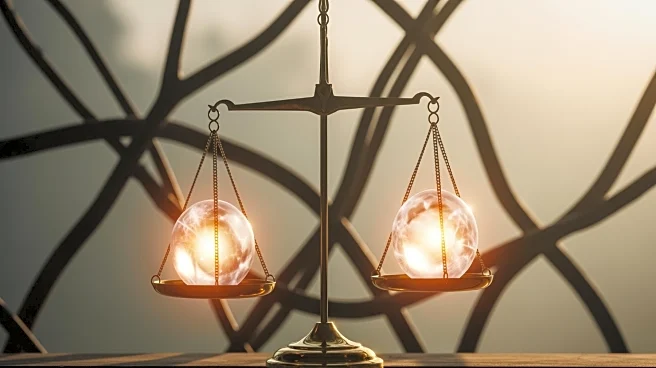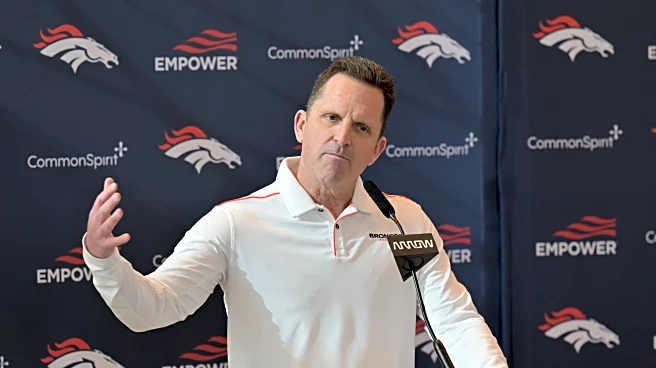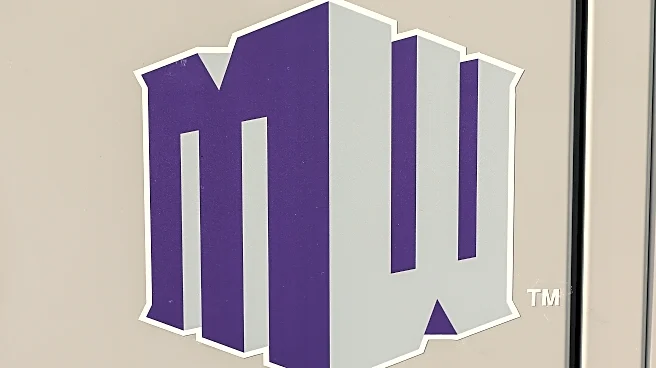What's Happening?
In the United States, the feminist movement has faced challenges during President Trump's second term, including the dismantling of nondiscrimination programs. Despite these setbacks, women from male-led
faiths such as the Catholic Church and conservative evangelicals are actively participating in social and political debates. These women, who are often barred from serving as priests or senior pastors, are finding ways to engage with issues that matter to them. For instance, over 6,500 conservative Christian women attended a conference organized by commentator Allie Beth Stuckey, who encouraged them to reject feminism and progressivism in favor of religious teachings. Meanwhile, Catholic nuns are advocating for social justice, with some publicly rebuking figures like Cardinal Timothy Dolan for praising individuals with controversial views. These women are committed to supporting marginalized communities and advocating for peace and equality.
Why It's Important?
The involvement of women in male-led faiths in social and political debates highlights a significant shift in traditional gender roles within these communities. Their active participation challenges the notion that women in these faiths are passive or disengaged from societal issues. This movement could influence broader discussions on gender equality and the role of women in religious institutions. As these women continue to advocate for social justice and engage in political discourse, they may inspire others to reconsider the boundaries set by their faiths and push for more inclusive practices. Their actions also underscore the importance of diverse voices in shaping public policy and societal norms.
What's Next?
As women in male-led faiths continue to engage in social and political debates, there may be increased pressure on religious institutions to reevaluate their stance on gender roles. This could lead to more discussions about women's ordination and leadership within these communities. Additionally, the advocacy efforts of these women may influence public opinion and policy, particularly in areas related to social justice and equality. Religious leaders and institutions may need to address the growing demand for inclusivity and representation, potentially leading to changes in doctrine or practice.
Beyond the Headlines
The active participation of women in male-led faiths in social and political debates raises questions about the intersection of religion and gender equality. It challenges traditional patriarchal structures and highlights the potential for religious communities to evolve in response to societal changes. This movement may also have cultural implications, as it encourages a reevaluation of the roles women play in both religious and secular contexts. The actions of these women could contribute to a broader cultural shift towards greater acceptance of diverse perspectives and the dismantling of gender-based barriers.











